February, 2018. Somewhere over Europe. The man in front of me has his head in my lap. Okay, not literally, but it seems that way. He’s sitting in the row in front of me and has managed to take an already uncomfortable seating situation and make it unbearable by reclining his seat. The leg room on this plane is the smallest I’ve ever seen, and, barring amputation, the legs on my 5’10” frame literally (this time I mean it) have nowhere to go.
The man sitting in the seat next to mine, an older gentleman wearing a blue Polo shirt and a hearing aid, smiles in sympathy. We pass amused glances back and forth for the flight’s duration, and I feel like I’ve made a new friend, although we only exchange three words the entire flight: Pequeno (when he indicates how cramped the seating situation is); Obrigada (after he motions that he’ll switch seats with me, though as I thank him I show him how I can stretch my legs into the aisle); and Fenêtre (for some reason I decide to say “window” in French when the flight attendant asks him in English to open his shade for landing, though the man has given no indication to being able to speak French. Still, he seems to understand).
When the man in front of my friend leans his seat back, he and I start laughing together, I from my pretzel position and he with his legs newly squashed. Our shared discomfort turns this unbearable situation into a pleasant memory.
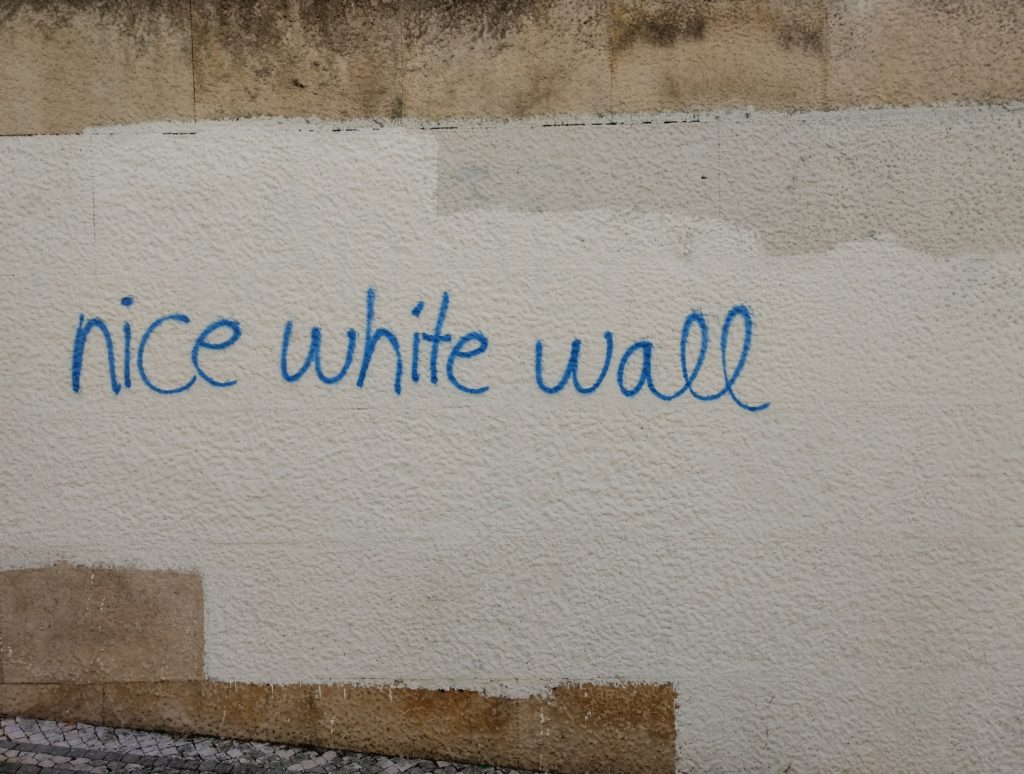
In recent years, especially when I’ve traveled in Europe, it’s clear that English is becoming the dominant language for tourism, and I have to admit that having a shared language makes traveling easier. It makes it easier to get around, and it makes it easier to have a certain type of conversation.
While I recognize this is the reality of the world we live in, I’ll confess that I feel sad by what is getting lost from the wanderlust of travel when we shift into speaking primarily English in non-English-speaking countries. I have always loved the challenge of figuring out how to communicate with someone without a shared language. The cacophony of fragmented phrases and hand gestures, facial expressions and pictures scrawled on scraps of paper has long been one of my favorite things about travel, and it’s something I don’t get to experience often now that English has become the default language.
Summer, 2000. The Great Wall, Somewhere in China. Lori and I go to a place in China where the Great Wall has only recently opened to tourism. It is in a sliver of a town, not even a town really, just a couple of restaurants and a hotel. There are only a couple of tourists here, grubby backpackers like us.
After we hike the wall we find a minuscule restaurant with a menu written only in Chinese. Rather than making us spend an hour and a half trying to decipher the Chinese characters, the waiter leads us into the kitchen, opens the refrigerator, and we point at a few ingredients that look good. A few minutes later, the waiter brings out four platters of food, enough to feed a group of family. We laugh, eat as much as we can, and hope he takes our leftovers home to feed his family.
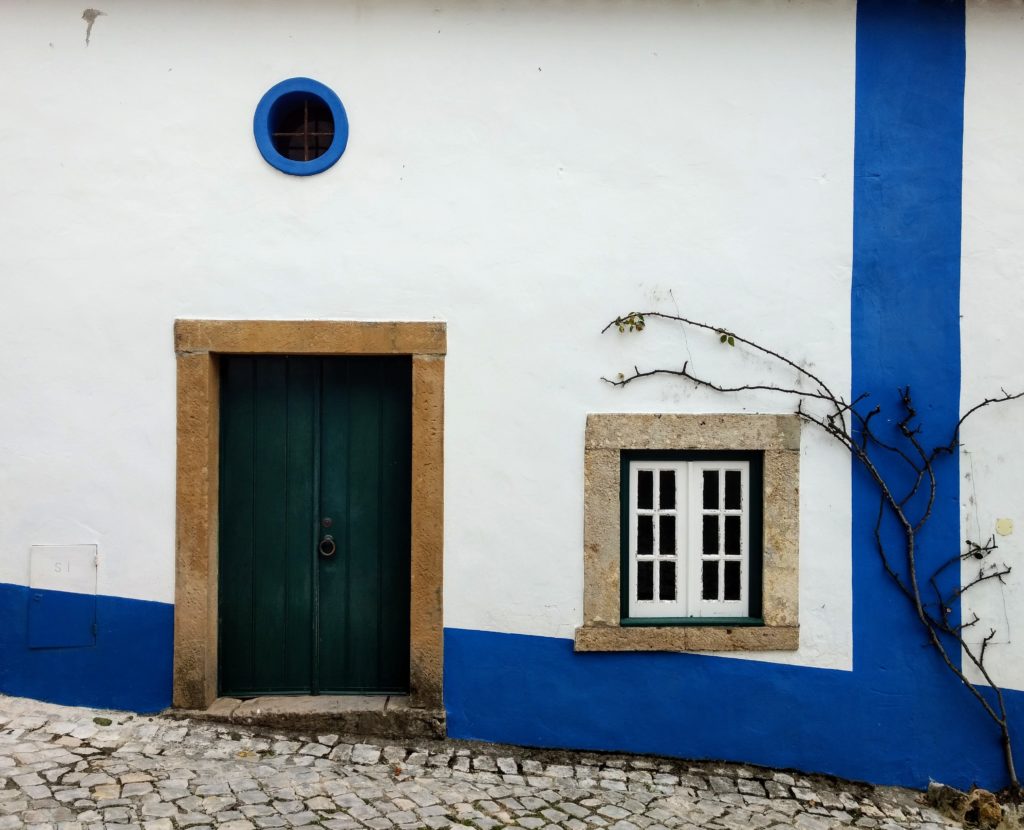
It’s odd being in places that feel so foreign after the familiarity of living in Paris. A few days ago I was trying desperately to find people who would not speak English with me, and now I’m often finding myself grateful that so many people speak English.
Interestingly, while in Portugal I found myself speaking more French than I did in Paris: a waiter in Belém who asked me if I speak French when I responded to his Portuguese with a blank face, and our entire conversation was in French, though I later heard him speaking English with other tourists; a man from Cape Verde now living in Lisbon exchanged travel stories and a lot of laughter with me; in a park in Porto I came across an eccentric woman feeding a gaggle of chickens and we spent twenty minutes talking about travel, life, and roosters.
Still, more often the conversations I’ve been hearing and having are in English. It is strange that English is fast becoming the first language I hear when in tourist areas, that in most situations I can safely assume that a person will speak at least some English even before asking.
That said, I’ve always felt that it’s my responsibility as a traveler to figure out how to communicate with the locals, not the other way around. I travel because I want to immerse myself in a culture, and part of the foundation of this is rooted in the language of a place. At the very least I feel obliged to learn a few key words — hello, goodbye, please, thank you — and to try and pick up a new word or two each day on my journey.
In the end, though, when neither party shares the same words, you have to get creative with communication.
Summer, 2000. Somewhere in China. On a train, Lori and I befriend a young, lanky Chinese man. He speaks virtually no English, and while we’ve mastered xiè xie (thanks), nǐ hǎo (hello), nǐ hǎo ma? (how are you?), and Dòufu (tofu), our conversation is limited. We occupy the ride by drawing pictures and symbols in my notebook. We explain the astrological signs to him, and he explains Sheng Xiao, the Chinese Zodiac to us.
I still have that notebook, Mighty Mouse is on the tattered cover, and every time I look at it I think of that young man and wonder how he is doing.
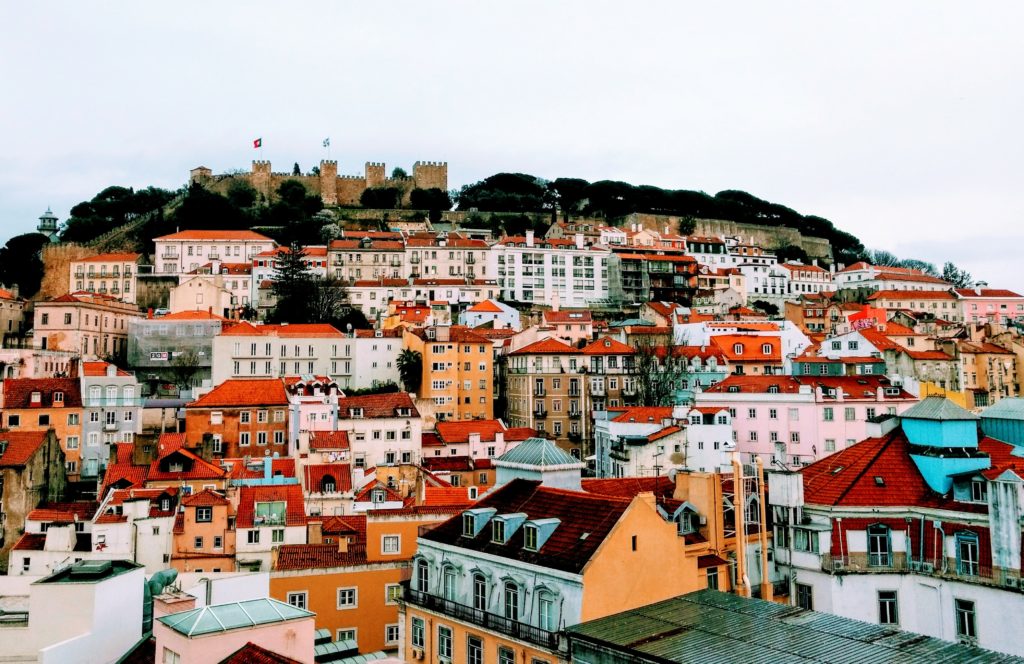
In Portugal and later on as I travel to Croatia, I find my brain a whirl of languages. I know a non-English word for something but is it a Portuguese word? A Spanish word? A French word? Italian? Russian? Something else?
I traveled to Brazil fifteen years ago, but I quickly realized that Brazilian Portuguese sounds nothing like the Portuguese I heard in Portugal; to my ear it sounded more like Russian. Not offended when I shared my observation, a woman working at my hotel in Lisbon explained, “Yes, yes, that’s because we eat our words here.”
Even the handful of Portuguese words I learned in Brazil seemed so wrong. Still, outside of the occasional busy café waiter, it’s rare that someone would get irritated by my curiosity. People have been almost-al kind with my attempts. They’ve been happy to explain to me how to say something in Portuguese; they’ve been patient with my pronunciation, and they’ve been proud to share their language with an outsider.
Language is a part of one’s culture; it is a part of one’s identity. While having English as a common language does make travel easier, I find there’s something missing when I only hear and speak English. And there’s something to be gained from knowing even one word in another language.
Summer, 1995. Prague, Czech Republic. On an overnight train from Prague to Frankfurt I find a compartment where an elderly woman is already sitting. Somehow I figure out she is Russian, and I open my mouth and say, Здравствуйте (Zdravstvuyte). Hello in Russian. Her smile fills the entire compartment, and we become instant friends. We stitch together a quilt of a conversation — a few words in French, a few words in German, a few words in English, and one perfect word in Russian. Zdravstvuyte.
As the train rolls through the night from the Czech Republic to Germany, other travelers try and enter our compartment. But my Russian friend defiantly refuses and draws tight our curtains. And so while the rest of the train is packed, we each have three seats to stretch out and sleep.
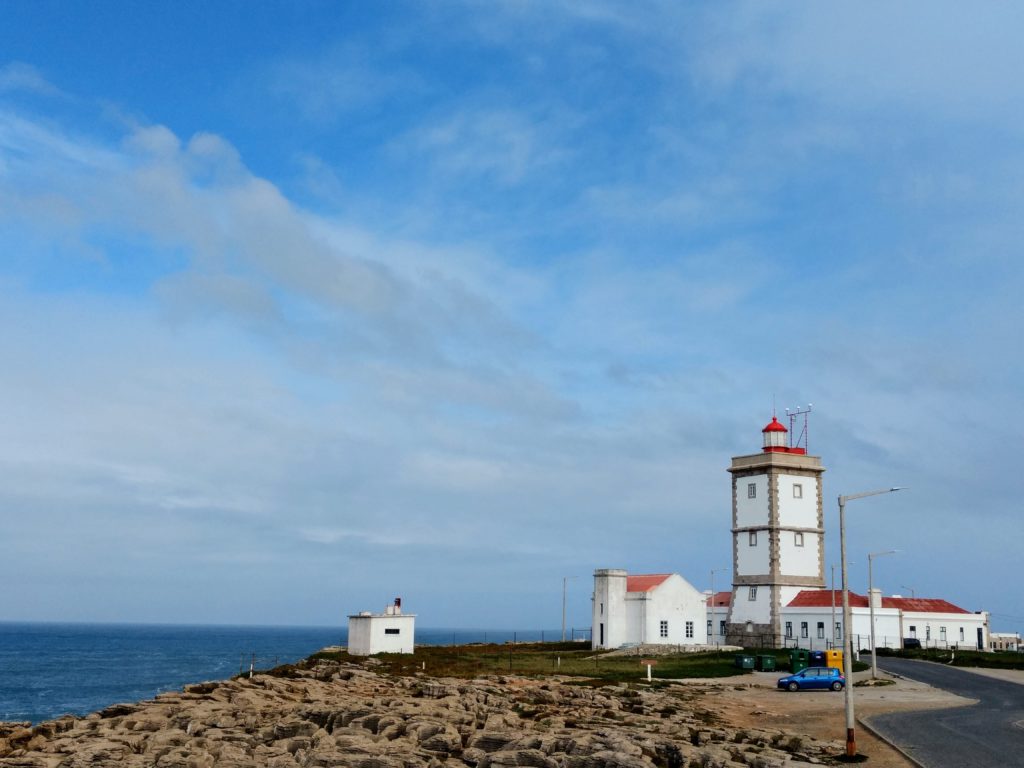
Conversation and the connectivity that stems from it can come in different forms — a gesture, a drawing, a single unexpected word. English is fast becoming the norm, but I worry that some of the magic of independent travel will vanish when the need for English speakers to learn another language diminishes. Some of my greatest travel memories haven’t come through seeing monuments or museums or attractions but instead through the awkward act of trying to communicate with the locals.
At the very least I still think it is important to try and learn a few basics, to start and end every conversation with the native speaker’s tongue, to ask the locals how to say something in their language, even if you stumble with pronunciation, even if the rest of the conversation is in English.
Back at the Great Wall. There is no infrastructure at this section of the Great Wall, no hand rails or pavement. Just dirt that I’ll never get out of my clothes and a smiling Chinese woman sitting in a folding chair under a hand-painted sign that reads, “Great Wall Entrance.” She collects a small entrance fee each time a traveler passes under her sign.
When Lori and I leave the town, our plan is to head to Xian to see the Terra Cotta Warriors. We have a vague sense of where we’re going, but we aren’t sure exactly how to get to the train station. We somehow convey to the Great Wall woman where we’re going, and she writes down information on a scrap of paper and hands it to the driver when a bus pulls up. We’re on the bus for a couple of hours when it stops in what seems like the middle of nowhere. The drive points at us and motions that we need to get off. There is nothing there but a couple of men with mini vans. One of them looks at our scrap of paper and indicates that we should come with him.
Lori turns to me and says, “I am not getting in that mini van.”
I say, “Lori, I think it’s okay. I trust the Great Wall woman.”
We get in the van and after a few minutes a train station appears on the horizon. Sometimes you have to trust, even without the words to do so.
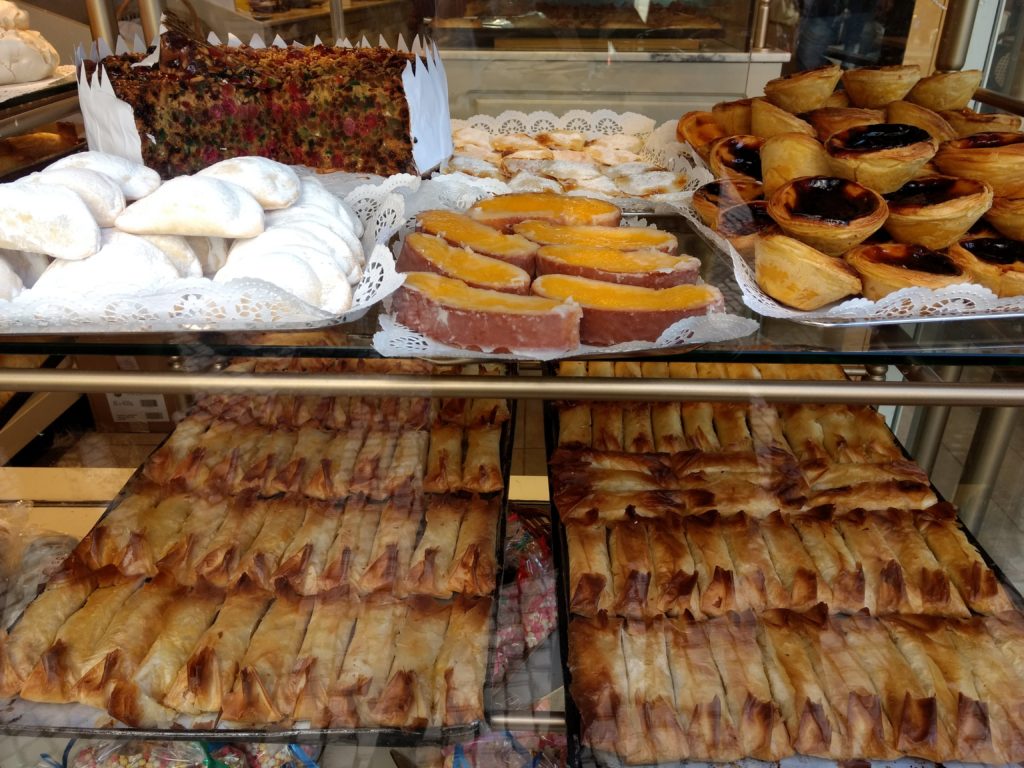
February, 2018. Coimbra, Portugal. Brad and I go to the Mercado Municipal. It’s a Monday in winter, off season and during Carnival, and the market is fairly quiet. But there are a few open stalls, and we manage to buy a few snacks: hazelnuts, fresh goat’s cheese, and a mix of figs. The vendors don’t seem to speak much English, and so we concoct a conversation in what I call Frenglispaniguese. We use hand gestures and smiles to help us along when we have no words.
Pequeno, I say to the woman selling us the figs. I hold out my hand in a small cup. Pequeno, I say again, pointing to the next barrel of figs. The woman scoops up a small scoop from each barrel. What did you say? Brad says to me. Pequeno. I say. From somewhere in the basement of my brain I remember from traveling in Brazil that Pequeno means small in Portuguese.
A man and a woman sit at a stall selling meats, but their case is empty except for a few half chickens and one enormous chicken breast. They try and sell them to us. I shrug my shoulders and raise my eyebrows. Je n’ai pas un cuisine, I say in French. I don’t have a kitchen. And they smile and seem to understand and wave us on our way. Obrigado, obrigada, we say again and again. And we are thankful to be able to share in their day. And everyone is happy.
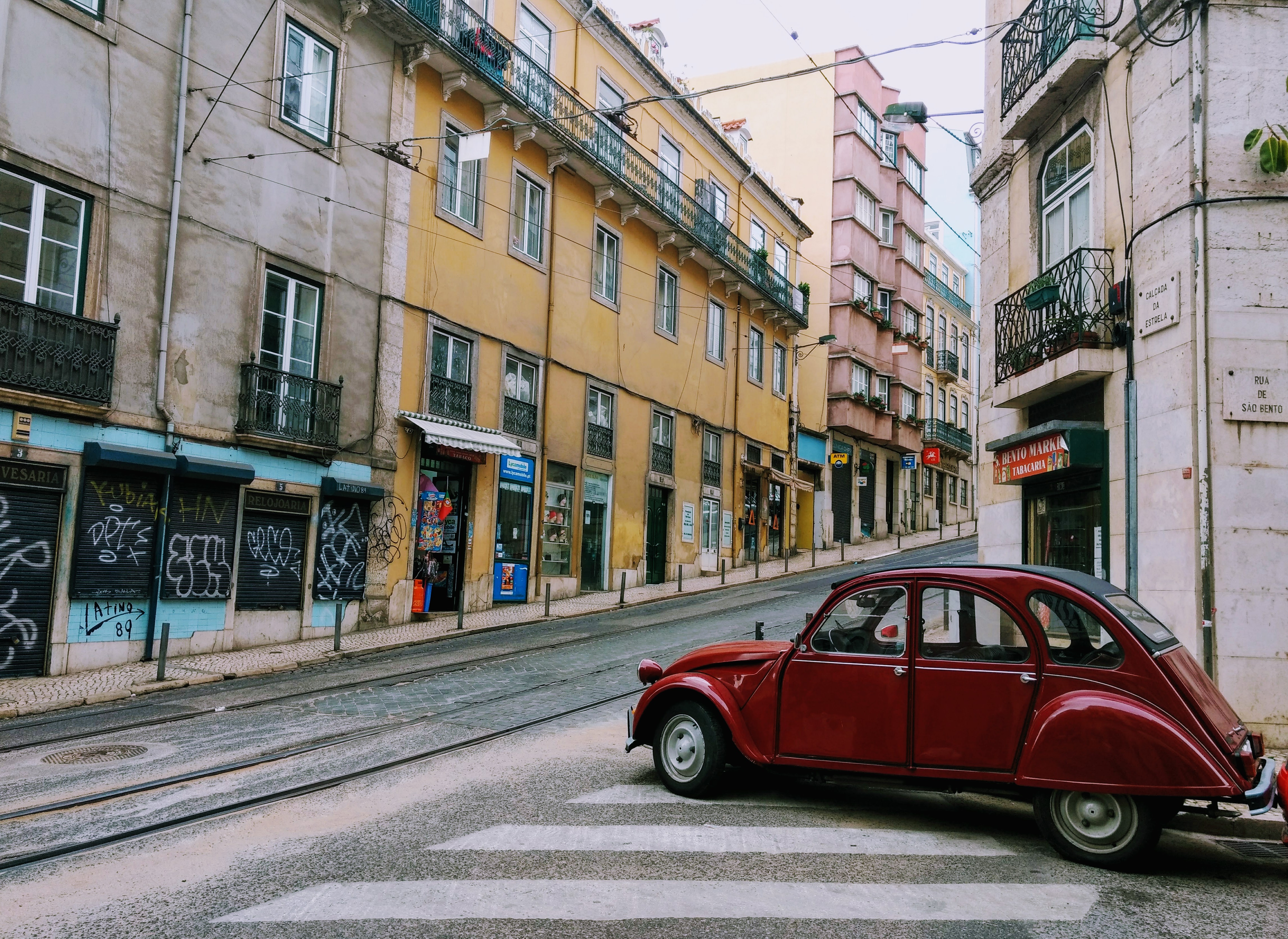




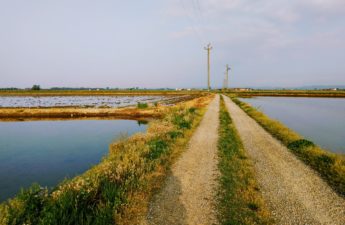

Nice to have you mention me & help me re-live memories that are hidden somewhere in the back of my head! Did I really say I wasn’t getting into that mini van?
One of my favorite China memories based on language/communication is when we were @ the fish restaurant, tried & tried to convey (unsuccessfully) w/drawings & body language not to serve the fish w/the head still on!
I’m glad you saw this — so many of my language travel stories are set in China. I was going to write about that fish story; when in Portugal, Brad and I went to a fish restaurant where they brought a plate of sardines to the table with the heads. But this time I was able to eat them (though not the heads — not that brave yet! but the heads stayed on the table with me).
I’m guilty of often not trying to speak the local language when I travel. I used to always do it, at least for a thank you and a hello, but then if I say it in their language they’ll right off say something else in that language very fast a lot and I’ll have to say ‘english’ ..LOL.
But a few years ago when I spent a month in Greece, I got lost quite a lot due to language barrier (because google map was in english and then on the streets sometimes they only had street names written in Greek). So I learned their alphabet from YouTube, and the next weeks I was never lost again. And it’s so fun to know how to read another alphabets! It wasn’t all that Greek to me anymore ..LOL.
I think that’s a part of why so many of my language stories are from China as reading Chinese (and therefore speaking/understanding Chinese) was so impossible. It could take twenty minutes to decipher one character.
I do find that most people are pretty kind with my (often failed) attempts and don’t get irritated when I don’t understand them. Maybe it’s because I’m such a curious person by nature; I’m always asking how to say something in another language. Just an hour ago, here in Rome, I ordered a sandwich in a little bar. Clearly I don’t speak Italian, though I was using the handful of Italian words I do know. When it became clear to me that the owners speak some English I asked how to say “take away” in Italian (porta via) and immediately they were both smiling and happy to teach me. My formula: a smile, curiosity, and politeness. Goes a long way!
Oh, I love this! My first similar experience like this was on a train from Rome to…Paris, maybe? Somehow I ended up talking to the guy across from me. He spoke Italian and Spanish; I spoke English and French. But it was a conversation! And in that moment I knew the world could be mine if I just opened my ears.
Now I’ve learned smatterings of additional languages. If only I could keep them all in my head at once!
Yes, that’s exactly it. Just open your ears, and you can go anywhere. I’m happy that I’m still getting moments like this in my travels.
And, yes, I’m finding that the bits and pieces of different languages are all blurring together (though being more advanced in French really is helping me figure things out in Italian, at least in terms of vocabulary).
Have I mentioned that I can’t wait until you get here? (Well, until you — and I — get to Venice!)